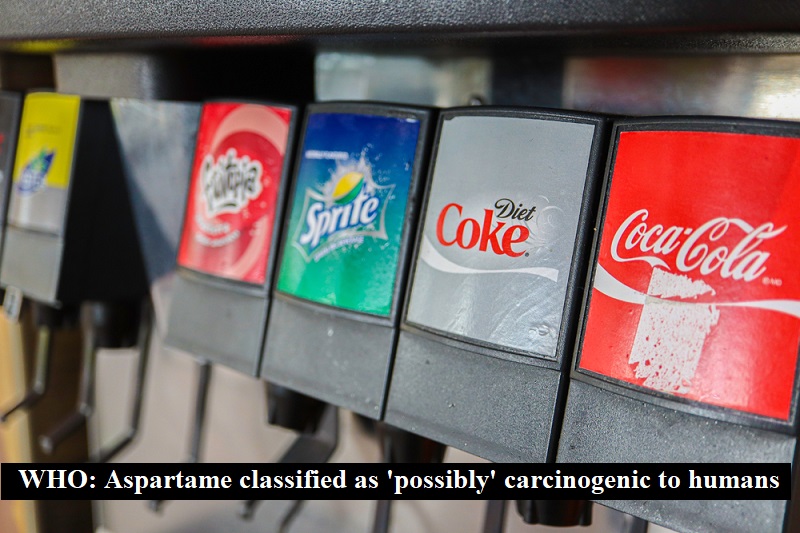
According to an assessment report by the World Health Organization (WHO), aspartame, an artificial sweetener widely used in food and beverages, is classified as “possibly” carcinogenic to humans. This classification is based on limited evidence of its carcinogenicity in humans, specifically for hepatocellular carcinoma, a type of liver cancer.
The International Agency for Research on Cancer (IARC), the WHO, and the Joint Expert Committee on Food Additives (JECFA) of the Food and Agriculture Organization (FAO) have released assessments on the health effects of aspartame.
The WHO statement explained that aspartame is classified as “possibly carcinogenic to humans” (Group 2B) due to limited evidence of cancer in humans, particularly hepatocellular carcinoma. There is also limited evidence of cancer in experimental animals and potential mechanisms for causing cancer.
JECFA conducted risk assessments to determine the probability of cancer occurrence under specific conditions and levels of aspartame exposure. The available data did not provide sufficient reason to change the previously established acceptable daily intake (ADI) of 0-40 mg/kg body weight for aspartame. Therefore, JECFA reaffirmed that it is safe for individuals to consume aspartame within this limit.
The WHO statement clarified that IARC classifications reflect the strength of scientific evidence regarding an agent’s potential to cause cancer in humans, but they do not indicate the risk of developing cancer at a specific exposure level.
Dr. Moez Sanaa, Head of WHO’s Standards and Scientific Advice on Food and Nutrition Unit, emphasized the need for better studies, including longer follow-ups and repeated dietary questionnaires. Randomized controlled trials and mechanistic pathway studies relevant to insulin regulation, metabolic syndrome, and diabetes are also necessary to understand the potential carcinogenicity of aspartame.
IARC and WHO will continue to monitor new evidence and encourage independent research groups to conduct further studies on the possible association between aspartame exposure and its effects on consumer health.

Post Your Comments